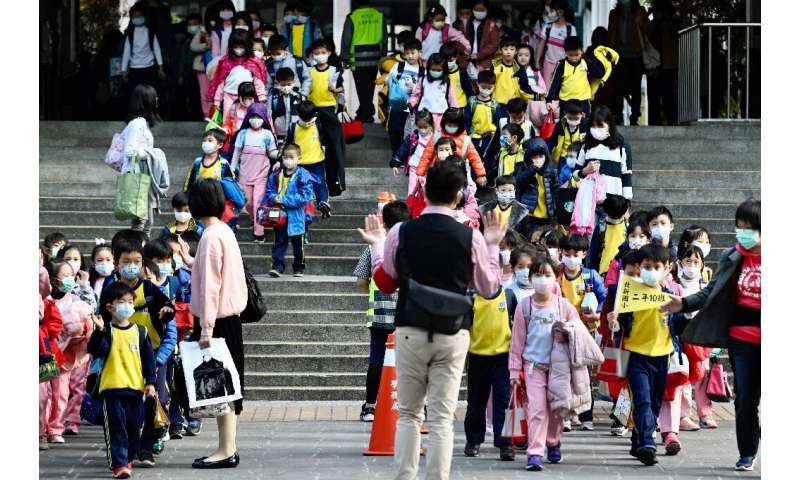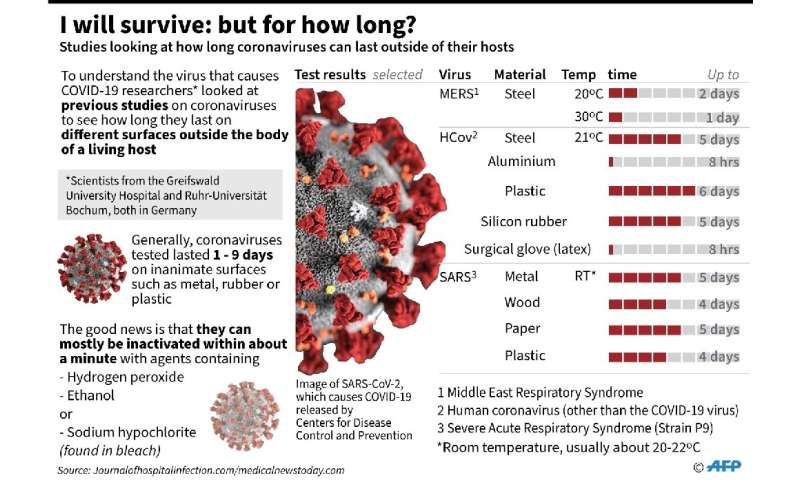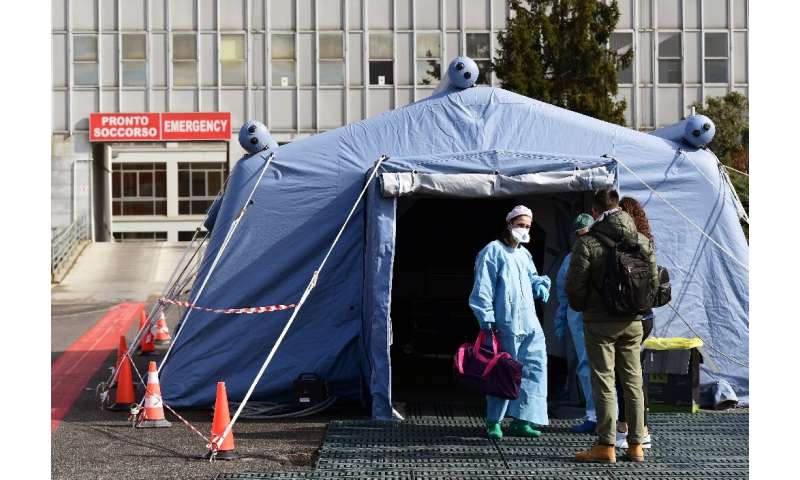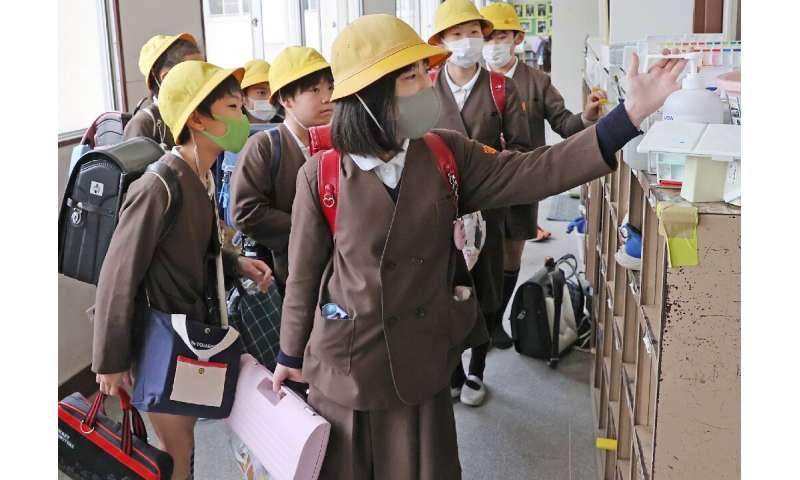[ad_1]

Almost 300 million students worldwide faced weeks at home with Italy and India the latest to shut schools over the deadly new coronavirus, as health officials warned many countries were not doing enough to fight the outbreak.
More than 97,000 people have been infected and over 3,300 have died worldwide from the virus, which by Thursday had reached more than 80 countries and territories.
The US state of California declared an emergency following its first coronavirus fatality—raising the US death toll to 11—and a cruise ship was kept offshore after passengers and crew members developed symptoms.
Britain and Switzerland also reported their first deaths from the outbreak on Thursday, while Bosnia and South Africa confirmed their first cases.
Most deaths and infections are still in China, where the virus first emerged late last year, prompting the country to quarantine entire cities, temporarily shut factories and close schools indefinitely.
But infections are now rising faster abroad than inside China, with South Korea, with Iran and Italy emerging as hotspots.
The number of confirmed virus cases in Greece surged after 21 travellers recently returned from a bus trip to Israel and Egypt tested positive for the virus.
France also reported a stiff jump in cases, bringing its total to 377, and two additional deaths that edged the country total to six.

Several countries have implemented extraordinary measures, with UNESCO saying on Wednesday that school closures in more than a dozen countries have affected 290.5 million children.
India later announced it was closing all primary schools in the capital New Delhi until the end of March to prevent the virus from spreading.
The orders came as an India-EU summit scheduled for March 13 was also postponed.
While temporary school closures during crises are not new, UNESCO chief Audrey Azoulay said “the global scale and speed of the current educational disruption is unparalleled and, if prolonged, could threaten the right to education”.
Italy has ordered schools and universities shut until March 15, and on Thursday reported a sharp rise in coronavirus deaths, bringing the total to 148.
South Korea—second only to China in terms of infections with cases jumping past 6,000 on Thursday—has postponed the start of the next term until March 23, while in Japan nearly all schools are closed until early April.
Schools have also shut in Iran, where 107 people have died from the disease.

Not enough
The World Health Organization warned Thursday that several countries were not showing “the level of political commitment” needed to “match the level of the threat we all face.”
“This is not a drill,” WHO chief Tedros Adhanom Ghebreyesus told reporters. “This epidemic is a threat for every country, rich and poor.”
The comments come as the impact of the virus rapidly ripples across sectors.
The airline industry could lose up to $113 billion (101 billion euros) in revenue this year due to the impact of the new coronavirus, the International Air Transport Association (IATA) warned, as governments issue travel restrictions or ban visitors from virus hotspots.
Israel this week barred entry to almost all non-resident arrivals from five European nations, prompting Lufthansa to cancel all its flights to the country on Thursday.
Beijing is now concerned about importing cases, with 20 infections brought in from abroad so far—prompting several cities to require people arriving from hard-hit countries to self-quarantine.

The outbreak’s rapid spread has prompted fears of a global economic downturn and rumbled global stock markets, with Europe’s major exchanges sinking again Thursday.
The IMF said earlier it was making $50 billion in aid available for low-income and emerging-market countries to fight the epidemic, which it sees as a “serious threat” that it said would slow global growth to below last year’s 2.9 percent.
“At a time of uncertainty… it is better to do more than to do not enough,” IMF chief Kristalina Georgieva said.
Italy on Thursday unveiled a 7.5-billion-euro ($8.4-billion) economic rescue plan to deal with the impact of the virus, and in the United States, lawmakers reached a deal to provide more than $8 billion to fight the outbreak.
No kissing
Thousands of people remained stranded on the Grand Princess cruise ship off the California coast Wednesday as officials carried out tests on people on board.
A 71-year-old man who had been aboard the same ship during its previous voyage to Mexico died after contracting COVID-19.

The vessel belongs to Princess Cruises, the same company which operated a coronavirus-stricken ship held off Japan last month on which more than 700 people on board tested positive, with six dying from the disease.
The US federal government said it was going to buy 500 million respirators to stockpile for use by healthcare professionals as California declared its state of emergency over the virus.
Elsewhere, governments ramped up their own responses.
Japan said it will quarantine all arrivals from China and South Korea for two weeks, while the United Arab Emirates warned its citizens to “avoid travelling”.
Saudi Arabia has suspended the year-round Islamic “umrah” pilgrimage, an unprecedented move that raises fresh uncertainty over the annual hajj.
New measures in Italy—where 50,000 are under quarantine in several northern towns—include a month-long nationwide ban on fan attendance at sports events, and advising people to avoid greetings like kissing on the cheek or shaking hands.
Italy’s final match against England in the Six Nations Championship on March 14 was also postponed, officials said Thursday.
[ad_2]